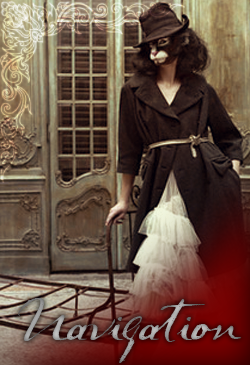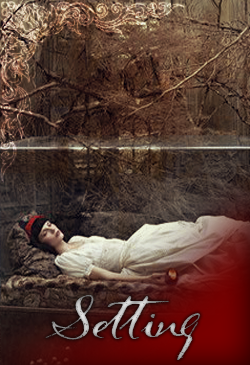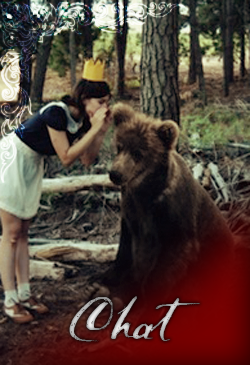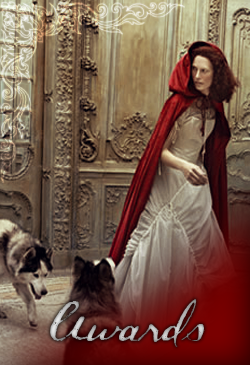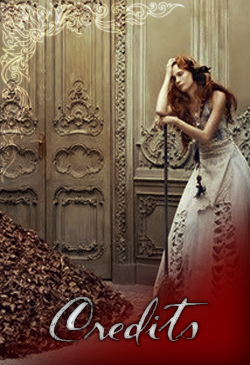Post by TEAM OUAC on Aug 3, 2011 19:58:34 GMT -5
Except in rare cases of a character dispute, Once Upon a City does not decline apps. However, starting today we're going to be implementing a process called Pending, in which, if we feel an app needs improvement, staff members will be working with applicants until their apps and characters are up to OUAC's standards. Don't be discouraged if your app is pended: with a little bit of work, it'll be accepted in no time! However, if you wish to save yourself some trouble, the following is a list of common pitfalls to avoid if you want to increase the likelihood of your app being accepted.
1. A List of Traits as a Personality
2. Overly Traumatic Pasts
3. Characters with no Flaws
4. Backstory
5. Generic Descriptions
6. References to Other Characters
7. Motivation, motivation, motivation!
8. Writing Sample
9.FOR HEAVEN’S SAKE LEARN TO USE A GODDAMN APOSTROPHE Grammar is your friend!
Good luck on your apps, and above all, be sure tomake a Dr. Jekyll, post for Monica HAVE FUN!
1. A List of Traits as a Personality
Go ahead and list three traits that describe you. Maybe you’re thinking of things like “shy”, “likes the Yankees,” “fun-loving”, or “friendly”, but is that really the extent who you are? The same should apply to your app. If a character is fully fleshed out, you shouldn’t be able to describe him or her with simply a list of embellished traits. That’s not to explicitly say that an app with a list of embellished characteristics will absolutely be declined. If you manage to portray a fully-developed and believable character through a list of traits, that’s fine. But the aforementioned is not an easy thing to do, and will certainly handicap you through the acceptance process. Unless you’re completely confident that your list of traits will delve beyond the surface of your character, we recommend that you write the personality full-out: while this may take longer, it will save you revision time in the long run.
2. Overly Traumatic Pasts
As fun as coming up with an overblown, unfathomably traumatic past may be, realize that in real life such pasts would be expected to have overwhelming psychological implications later in life. That’s not to say that people with traumatic pasts don’t exist, but they certainly don’t constitute the majority of the world’s population. Be careful with traumatic pasts and bear in mind that your character’s personality and present should reflect their past. We’re going to be hesitant about accepting a character whose entire family has been brutally murdered and was raped and beaten by her foster parents, but who then shrugged it all off and became head cheerleader and valedictorian without looking back on it again. Exercise caution and subtlety.
3. Characters with no Flaws
The perfect character is probably the most common pitfall that we encounter in apps: a character’s endearing qualities are embellished upon to the extreme, while the flaws are superficial and given little thought. Your character needs to be a real person, and real people have real flaws. Now, “she’s a little clumsy”, “he says ‘sorry’ too much,” and “he’s scared of bees” are not flaws. If you can’t get past these perfunctory characteristics, try delving a little bit deeper into these flaws. Instead of being simply “clumsy”, a character might be going through a late puberty and be having trouble adjusting to his or her elongating limbs. A character might say sorry too much because he deeply believes that he is undeserving of any praise, and that everything bad that happens around him is his fault. A character might be scared of bees because his childhood best friend was allergic to bees and was put in critical condition by a sting. You might also look at the character’s positive traits and see what negative traits they may imply. For example, if your character is rich and successful, think of what smugness or arrogance this might lead to. That kind of deeper delving will make your character much more believable, and you may even discover some new things!
4. Backstory
Yes, believe it or not, we here at OUAC do read the backstory on your app, and weigh it in terms of acceptance. Mainly what we’d like to see is that you’ve thoroughly researched the character, and that you’re creating the character from the original fairy tale or literature and not solely from the movie. This applies particularly to fairy tales or legends with Disney movie adaptations. For example, if you’re making Aladdin we’re looking for the Aladdin from Arabian Nights, not Aladdin from the Disney movie. A backstory that only reflects knowledge of a movie is probably the most certain ground for pending an app. Wikipedia and Wiki Pages are great sources for research. We’re also a pretty literate group, so if you’ve got a question on a piece of literature just go ahead and ask in the cbox!
5. Generic Descriptions
Part of creating a good and original character is making it unique. A character’s uniqueness should be clear from your app. For example, simply stating that a character is “talkative” and going on to say that he “talks a lot, in any situation, to anyone, etc.” should be avoided. Lots of people in the world are talkative. What we want to know is what makes this particular character different from every other talkative person in the world. Maybe your character is romantically attracted to the sound of her own voice. Maybe he’s deathly afraid of silence and feels the need to fill any void with conversation. Maybe being talkative is a manifestation of her loneliness and longing for human interaction, or maybe a reflection of his need to be the dominant presence in any crowd that he’s in. In any case, traits need to exhibit the uniqueness of the character, and they need to go deeper than the skin.
6. References to Other Characters
Your app shouldn’t reference other characters unless you’ve conferred with the person who plays the character. Arbitrarily including a preexisting character you don’t play in your app’s past or present is a form of powerplaying, and certainly not allowed.
7. Motivation, motivation, motivation!
A character should not be an arbitrary list of traits, and flaws should not just be randomly stuck in to give the character more depth. A character should have motivation behind everything that they do: this is how it happens in the real world, after all. For example, no character is simply a vegetarian for no reason: this trait should be clearly attributed to something in your character’s past or personality. By the same token, if you are creating a serial killer character, there must be a reason behind his or her killings, whether it’s a psychological disorder or a traumatizing experience with whomever it is he or she is killing. No person who has committed acts of sin has done it because he or she is simply “evil”. True motivation behind a character is often what separates a good app from an exceptional app.
8. Writing Sample
As previously stated, excluding conflict over a single character, OUAC does not decline apps. We’re also not going to ask you to change or improve your writing sample: however, it is still to your advantage to include a writing sample that reflects your best work. The quality of a writing sample may sway us one way or the other in an app we are on the fence about, and may also be the tiebreaker if we are forced to choose between two apps.
9.
This is a literate roleplay site. This means that you need to be proficient in spelling and grammar. Obviously, one punctuational error is not going to cause us to pend your app. However, if you exhibit a blatant disregard for the proper use of punctuation (for example: if clearly don’t know when to use an apostrophe, if you switch frequently between tenses, if you mix up “your”s, “their”s, “its”s etc.) thenMonica will shove a steel pole up your left nostrilwe may have to work with you on that before we can accept your app.
Oh, and please capitalize. Please please please. This shouldn't even like, be a thing.
Good luck on your apps, and above all, be sure to


